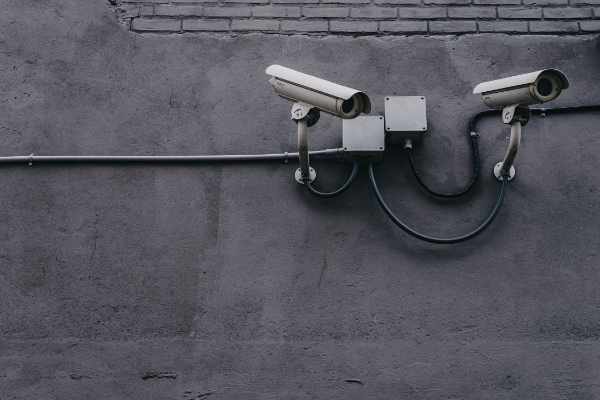Choosing the right home security system is a big decision, and it’s not one that you can take lightly. A home security system can help protect your family, possessions, and property and give you peace of mind, but it can also be expensive to set up and maintain. In fact, the growing need for home security systems has led to increased demand in the global market. The worldwide home security system market is growing at a CAGR of 8.6% from 2022 to 2030.

6 Tips for Choosing the Right Home Security System
There is a wide range of products to match the customers’ needs. For many homeowners in the market for a new system, the decision comes down to what type of home security they want and how much they want to spend on installation, monitoring fees, and equipment costs.
Here are some tips to help you find suitable home security systems:
1. Assess Your Security Needs
The first step to finding the right system for your home is assessing your security needs. Home security systems are not one-size-fits-all, so it’s essential to consider what kind of protection you want before purchasing. This can depend on the crime rate at your location.
For instance, Kentucky has a property crime rate of 17.3 per 1000 people, which is quite low. However, data shows that the concern for property crimes has increased. According to recent data, 55% of Kentuckians report property crime concerns in 2023, which is 7% higher than in 2022. So with the crime rate rising, do you need a security system for your home?
If you, too, are concerned, your home security needs might be more extensive if you live in a city like Louisville or Lexington. In a recent scenario in September 2022, a woman was found trespassing around UK basketball coach John Calipari’s home. Lexington City police reported the trespassing.
Due to such news alerts, having strong home security in Lexington, KY, is recommended. Or here in Louisville for that matter. If you have implemented such preventive measures in your house, it will keep trespassers and burglars at bay.
Consider how much security you need in terms of the following:
- The safety of your family members and pets
- The value of belongings in your home
- Peace of mind from knowing that everything is okay while away from home or asleep at night, and if something isn’t okay, having an easy way out
2. Determine Your Budget
While you’re in the process of choosing the right home security system, it’s essential to determine your budget. The installation cost will vary depending on your home’s size and layout and your chosen company. Some companies charge per square foot, while others offer a flat rate based on location.
Additionally, other factors can affect the installation price, such as whether they need to drill through walls or ceilings to run wires throughout your house. The monthly monitoring fees cover all aspects of protecting your property:
- 24/7 monitoring
- Live support from an agent who answers questions about how best to use their equipment
- Remote access via computer or smartphone app so that if something goes wrong at home while away from home, then someone would be able to see what triggered it before calling police or fire department services out onto the scene
- Updates when new technologies become available so that older models don’t become obsolete
3. Research Different Types of Security Systems
The first step to choosing the right home security system is to research the different types of security systems. You’ll want to know what they are, how they work, and their pros and cons so that you can make an informed decision.
The most common options include:
- Traditional wired systems use wires and cables to connect sensors and cameras with a central control panel. They’re reliable but may require professional installation if there’s no existing wiring at your house or apartment building.
- Wireless systems: These use radio waves instead of cables or wires to send signals between devices and the control panel. This makes them easier to install yourself since there’s nothing else required besides wiring power into each piece of equipment before setting it up on its stand-alone unit inside your home.
Before selecting one, you must also consider the costs of both types of systems. Data shows that wired systems cost around $600-1600, whereas wireless ones cost $200-2000.
You must also decide whether you need residential or commercial home security systems. It is also wise to go beyond cameras and locks for home security. Installing carbon and monoxide detectors is also crucial.
According to Kentucky Secured, these detectors can help you escape the property quickly in an emergency. The company states that these detectors can also auto-notify the local fire department so that you can focus on getting out of the place.
4. Consider Professional Monitoring
Professional monitoring means seeking help from professionals to constantly watch your property.
- Consider professional monitoring. Using a professional monitoring service is a good idea if you want to feel completely comfortable and secure. These companies can provide around-the-clock monitoring of your system and alert authorities if they detect anything unusual in your home. The downside is that these companies charge a monthly fee for their services, but many people find this expense worth it compared to having their property damaged or stolen by thieves who know how easy it is to break into an unmonitored house.
- Choose a reputable company. When choosing a company for your home security needs:
- Ensure they have been around for at least five years
- Check out ratings on websites like Yelp. and Angie’s List before signing any contracts
- Ask them about any guarantees they offer
- Ask what kind of equipment they use so you can compare prices between different providers
- Ask whether there are any additional fees associated with cancellation or early termination
5. Evaluate Smart Home Integration
When considering a home security system, it’s essential to consider how well it integrates with other smart home devices. You may already have an Alexa or Google Assistant speaker, for example, and if so, this could be an excellent way for your kids to ask about the weather or what time it is without having to touch anything.
If you want to connect your security system with other systems, ensure the company also offers support for those services. It’s also worth looking into whether they have any plans for future integration updates so that you know what kind of support they’ll offer when new products come onto the market.
6. Read Customer Reviews and Ratings
Reading customer reviews and ratings can help you find the best home security system. Here’s how:
- Read the Reviews. First, check out what other customers say about the company and its products. You’ll want to look at both positive and negative comments to get an idea of what people do like and what they don’t like about their experience with the product or service. Reading reviews will also give you an idea of how easy it is to use a particular system before buying it yourself.
- Understand Rating Systems. Some companies use star ratings (1-5), while others prefer letter grades (A-F) or letters A through F with pluses (+) or minuses (-). Understanding these systems will help give context when reading through different reviews. However, remember that there may be slight differences depending on which company is being reviewed, so don’t rely solely on these metrics alone when deciding whether or not something meets your needs.
Conclusion
We hope this article has helped you! When you’re choosing the right home security system for your home it can be overwhelming. But we also want you to know that there are plenty of resources from experts and friends who have been through the process themselves. Take advantage of their knowledge.


